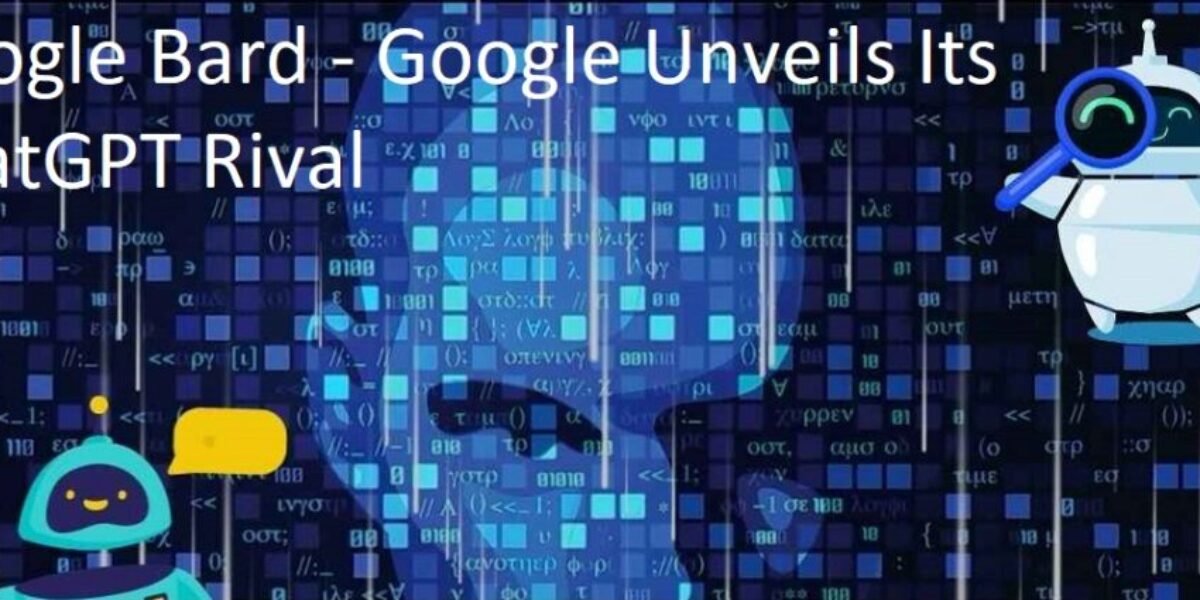Google Bard – Google Unveils Its ChatGPT Rival
Google Bard – Google Unveils Its ChatGPT Rival
On Monday, Google unveiled a brand-new chatbot tool called “Bard” in an apparent effort to counteract ChatGPT’s success in going viral.
Google and Alphabet CEO Sundar Pichai announced in a blog post that Bard will be made available to “trusted testers” starting on Monday with plans to make it public “in the coming weeks.”
Bard is based on a sizable language model, just like ChatGPT, which the AI research firm OpenAI publicly unveiled in late November. These models are trained on enormous online data sets to produce compelling responses to user prompts.
Pichai wrote, “Bard seeks to combine the depth of the world’s knowledge with the strength, intelligence, and creativity of our large language models.” It uses data from the internet to deliver original, excellent responses.
Online search, Google’s flagship product, is widely believed to be facing its biggest risk in years at the time of the announcement. In the two months since it was made available to the public, ChatGPT has been used to produce essays, stories, and song lyrics as well as provide answers to some queries that people may have previously Googled.
Also See: Google Trends – How To Use Google Trends For Local Keyword Research
According to reports, Google’s management has declared a “code red” situation for its search business as a result of the enormous attention being paid to ChatGPT. Paul Buchheit, a co-creator of Gmail, warned that the rise of AI could cause Google to be completely disrupted in a tweet from last year.
Microsoft has already stated that it would integrate the tool into some of its products. It is also rumored that Microsoft plans to integrate it into its search engine, Bing.
Microsoft has confirmed plans to invest billions in OpenAI. The subject of Microsoft’s upcoming news event, which will take place on Tuesday at its Washington headquarters, has not yet been revealed. Microsoft publicly announced the event shortly after Monday’s AI news from Google.
Although not widely accessible to the general public, the underlying technology underpinning Bard has existed for some time. On Monday, Google announced that Bard will be powered by its Language Model for Dialogue Applications (or LaMDA) technology, first unveiled about two years ago.
When a former Google engineer asserted that the chatbot was “sentient,” LaMDA made headlines in the latter part of last year. The AI community harshly criticized his claims.
Google used the request from a user to Bard to explain recent discoveries made by NASA’s James Webb Space Telescope in a way that a 9-year-old might find engaging as an example in the post on Monday. Bard answers in the form of talking points. One of them reads: “The JWST discovered several galaxies known as “green peas” in 2023. They were given this name because they resembled peas in size, shape, and color.”
According to the Google post, Bard can be used to organize a friend’s baby shower, contrast two Oscar-nominated films, or find lunch ideas based on what’s in your refrigerator.
Pichai added on Monday that Google’s popular Search tool will soon start to roll out AI-powered tools.
“Soon, you’ll see AI-powered features in Search that distill complex information and multiple perspectives into easy-to-digest formats,” Pichai wrote. “Whether that’s seeking out additional perspectives, like blogs from people who play both piano and guitar, or going deeper on a related topic, like steps to get started as a beginner, you can quickly understand the big picture and learn more from the web.”
There may be some risks if Google moves more toward integrating an AI chatbot tool into search. Experts have noted that because these tools are trained using data from the internet, they have the potential to reinforce prejudices and disseminate false information.
Pichai stated in his blog post that it was crucial to “bring experiences rooted in these models to the world in a bold and responsible way.”
